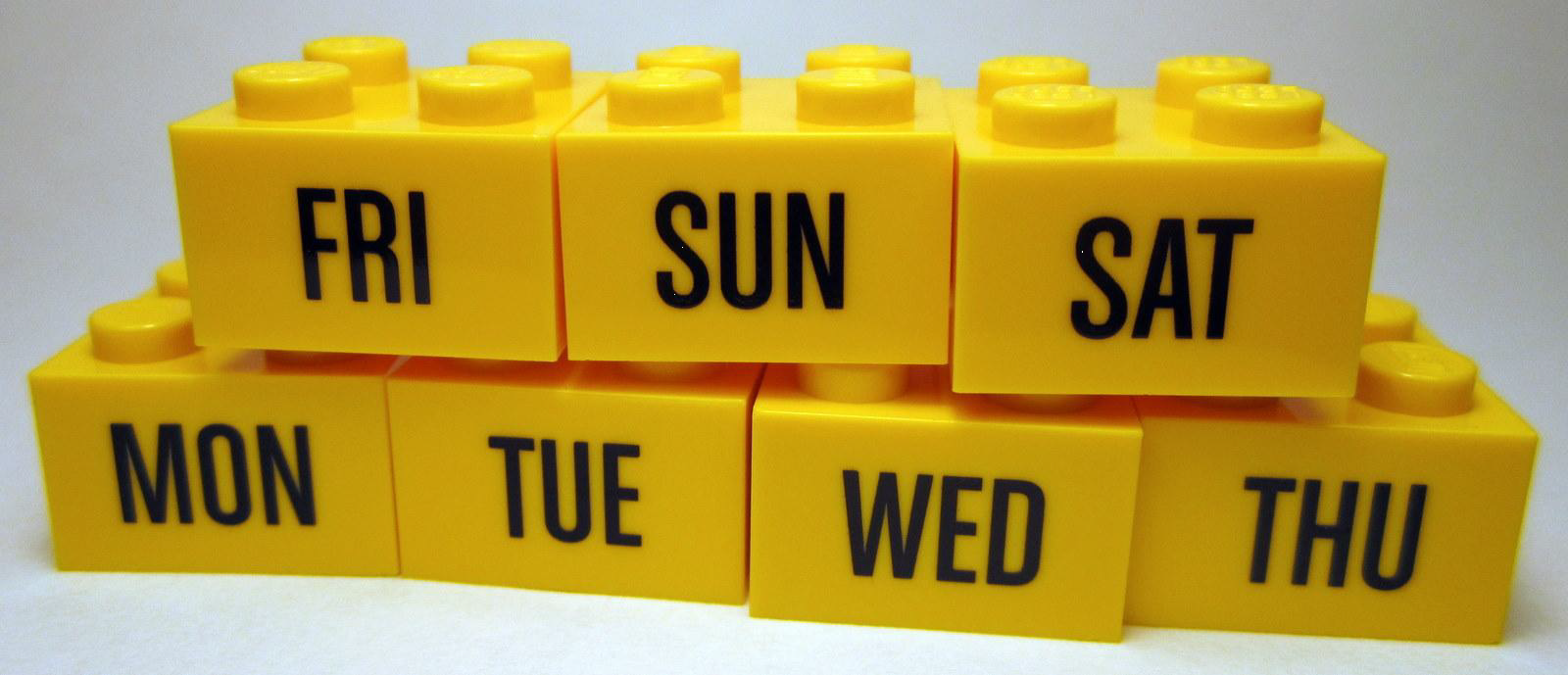General Health Articles
Healthy Living: Manic Monday? What Successful People Do on Mondays
You have seen all the memes on social media that wage war on a “case of the Mondays” and declare that it is the worst day of the week. But, did you know that Monday is the most critical day of the entire work week?
Experts say that because you took a two-day break from the trials and tribulations of your work week, Monday is your chance to make the entire week a memorable one.
Not everyone hates Mondays, though. Many of the world's most influential and successful people welcome Monday's with open arms and look forward to starting their week anew.

If you are looking to make your work week a more profitable one, starting with Monday, then follow what many successful leaders do:
- Wake up early.
- Exercise
- Eat a healthy breakfast.
- Arrive at work early.
- Clear your desk and desktop.
- Carve out time for unexpected projects and tasks.
- Greet your team and boss.
- Update your to-do list and weekly goals.
- Visualize the success of the week.
- Screen emails for urgent requests.
- Tackle the tough challenges first.
- Make an extra effort to smile.
- Add a “blanket of humanity” to your emails. (Reread them for friendliness and clarity before you send them.)
- Be able and learn to say “No”.
- Stay focused.
- Remember that there is “Tuesday”.
In the News: America's Least Fit (and the Fittest) Cities
In the recently released American College of Sports Medicine's (ACSM) 2019 American Fitness Index data report, 10 cities ranked lowest in overall health and fitness. Each city received a ranking and areas that needed “worked on” for the city.

And, the Fittest cities are,
#1: Arlington, Virginia
#2: Seattle, Washington
#3: Minneapolis, Minnesota
#4: San Francisco, California
#5: Madison, Wisconsin
#6: Washington, D.C.
#7: St. Paul, Minnesota
#8: Irvine, California
#9: Denver, Colorado
#10: Portland, Oregon
And, the least Fittest cities are,
#10: Bakersfield, California and San Antonio, Texas (tied)
#9: New Orleans, Louisiana
#8: Tampa, Florida
#7: Orlando, Florida
#6: Jacksonville, Florida
#5: Atlanta, Georgia
#4: Corpus Christie, Texas
#3: St. Petersburg, Florida
#2: Albuquerque, New Mexico
#1: St. Louis, Missouri
To view the full report and see the full results of these cities and other major metropolitan cities included in the ACSM's research, visit www.americanfitnessindex.org.
Healthy Living: Biggest Sunscreen Mistakes
We all know that we should be wearing sunscreen now that the sunny days of summer are here, but do you know what you are doing wrong with that sunscreen? Here are the biggest mistakes we are making when it comes to sunscreen.
 Sunscreen Mistakes to Avoid
Sunscreen Mistakes to Avoid
- You wait until you are outside to apply your sunscreen. : According to experts, you should apply your sunscreen at least 30 minutes prior to going out in the sun. That way it has time to absorb into your skin, plus you won't get those harmful UV rays during those crucial minutes when you are first in the sun.
- You apply your sunscreen around your clothes and/or swim gear. : If you are applying your sunscreen around your clothes or swimsuit then you may be missing parts of your body because you are worried about getting the lotion on your clothes or swimsuit. It's best to apply your sunscreen when you are naked and you can better make sure that you aren't missing any important spots.
- You miss other important areas. : According to experts, the most common areas missed are: the toes and feet including the bottom of the feet, underarms, back of the neck and under the hairline, ears and especially the tops of your ears, eyelids and inner upper arms. Sunscreen should be everywhere as the sun doesn't discriminate.
- You sweat or rinse it all off. : Be sure to read your sunscreen label and make sure you are choosing the correct sunscreen for the activity you will be participating in : like swimming or working out outdoors. Make sure you choose a water-resistant lotion for swimming or activities where you may be sweating a lot.
- You think you are safe indoors or in a car. : Driving can be a major source of incidental sun exposure. Windows and windshields block out UVB rays, but UVA rays can still seep in and those rays are on the spectrum that can cause the most skin aging and skin cancer.
In the News: Eat Your Way to Better Sleep
According to Men's Health Magazine, good old mom may have had it all wrong when she offered us a glass of warm milk to help aide our sleeping. The protein in milk could actually boost alertness rather than calm it.
 Healthy Sleep
Healthy Sleep
Instead the magazine's experts offer the following snacks to induce “feel-good relaxation chemicals” thereby calming your nerves and slowing your brain down towards relaxation: nonfat popcorn, oatmeal with sliced bananas, one cup of plain yogurt with two tablespoons mixed nuts, sesame seeds, pretzels, 4-oz. glass of unsweetened cherry juice, and red bell peppers.
Not only is a good night's rest good for your overall well-being, but it is also helpful to keep a youthful appearance and will it will also help you to feel younger, too.
So, pass on the glass of warm milk tonight and opt for any of the above snacks for that peaceful night's sleep. Good night!
Women's Health : Through the Decades
Women of all ages need to make sure to stay healthy and most experts break down women's health routines by their age. Here are some different checks and measures that should be met as women age, through their 60s.
 Women and aging
Women and aging
In your 20s,
Kick your unhealthy habits. Sure we all drank too much, ate too much, and maybe smoked too much during our college days, but those days should be left at college. Many habits that you form in your 20s stick with you throughout your life, so let go of the bad ones!
Plan for an annual physical. Schedule an annual check-up into your life and stick to it. You will thank yourself and will be assured that you are doing as well as you feel.
Get your fill of calcium and vitamin D.
In your 30s,
Keep an eye on the scale as many women begin to deal with weight struggles in their 30s.
Get your sleep : all eight hours : if you can!
Pay attention to irregular periods as they can be telling you something about your ovaries or thyroid as you age.
In your 40s,
Get a mammogram.
Have a diabetes screening done, as your chances of having Type II diabetes is more common in your 40s.
Try to get at least 20 to 30 minutes of exercise in per day.
In your 50s,
Pay attention to your heart and your risk factors like cholesterol and blood pressure.
Schedule a colonoscopy.
Get the flu vaccine every year.
In your 60s,
Have a bone density test done.
Make sure to increase your intake of vitamin B12, which helps to produce healthy red blood cells.
Inquire about getting a shingles vaccine and be careful of your risk factors for catching pneumonia.

